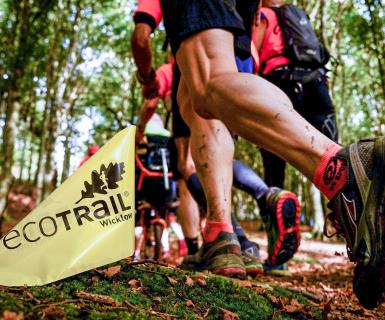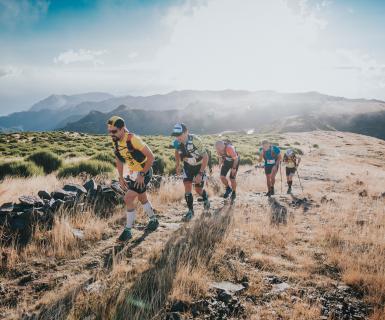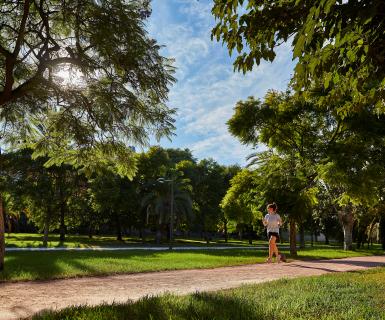The nutrition challenges inherent to sport performances are well known among athletes: optimizing energy supplies, managing hydration, favoring digestive comfort and anticipating recovery. Nutrition’s first and foremost role is to keep us healthy, obviously. But it also plays a crucial role in a global, collective and long-term issue: the protection of our planet. What is in our plates has a direct impact on greenhouse gas, which, in turn, can have a negative impact on climate change, biodiversity loss, land use and environmental contamination.
It is what we do every day that makes a difference. EcoTrail Paris has therefore decided to implement a pioneering project in terms of nutrition: taking into account both the sporting challenge and the environmental objective at refreshment posts. It is a tough challenge, since it is essential to target optimal products that guarantee digestive comfort and a proper energy supply. Regarding these requirements, we selected these products for refreshment posts:
- Applesauce: made with local products. Cooked apple is very easy to digest during an effort. Ripe apples and pears will also be available.
- Fruit paste, honey and sugar cubes: as basic as these may seem, they are perfectly adapted to the effort. They are very easy to digest and they provide quick-acting sugars. They are a great alternative to energy gels that can be poorly tolerated by our body, and that are unsustainable when disposable.
- Dry fruits and oleaginous fruits: even though these products must be eaten with moderation to avoid digestive discomfort, they increase chewing (which is important for long term efforts), they are enjoyable and they are full of energy-yielding nutrients (sugars and fats). Oleaginous fruits (hazelnuts and almonds) will also be served without their skin to make them easy to digest.
- Vermicelli soups: an excellent way of comforting runners with warm, liquid and rehydrating food (full of water and sodium), that is also digestible and salty.
- Salt: very useful to compensate sodium loss during long-term efforts.
Of course, “feel good” food will also be available at refreshment posts for runners who are lucky enough to tolerate it during the effort and who want to treat themselves during the race (cheese, saucisson, bread, cake, tea, coffee, sparkling water etc.). The vast majority come from local and/or organic producers. To be eaten with moderation !
In practice, we recommend that you consume different types of digestible food (fruit mixtures, fruit paste, honey or sugar cubes) every 30-40 minutes, that you drink water (or your personal energy drink) depending on how thirsty you are, that you add a little salt in your snack and that, depending on how sensitive your stomach is, you treat yourself to some “feel good” food in moderate quantities every 2-3 hours (30-50 grams per intake).










